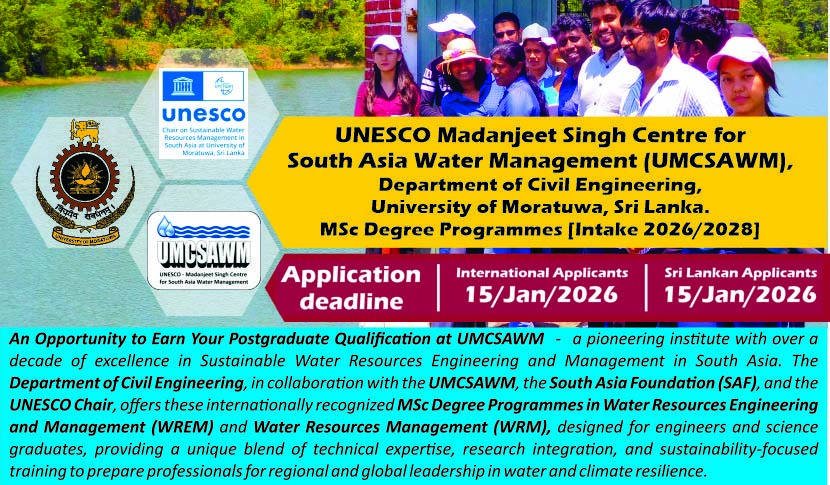Messages from Administrators
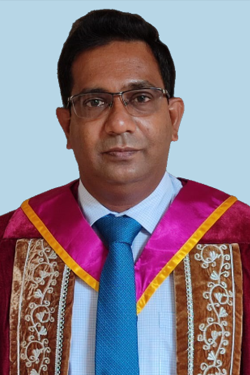
Message from the Chairman, UMCSAWM
Welcome to the Hydraulic and Water Resources Engineering Division at the University of Moratuwa. Our Master of Engineering/Postgraduate Diploma program in Water Resources Engineering and Management has a rich history, dating back to 1982. Since then, we have been committed to providing students with a comprehensive education in this field, and our program has evolved over time to meet the changing needs of the water resources sector.
Our program consists of two components: a one-year full-time program and a two-year part-time program. We offer eight fully paid Madanjeet Singh Scholarships to SAARC member countries, enabling pioneering water management research in areas relevant to South Asian countries. The program is designed to teach water management in a regional context, allowing participants with a wide range of water management backgrounds to obtain a firm grounding in the principles, techniques, issues, and practice of water resources engineering and management.
Our program is unique in that it follows a Problem-Based Learning (PBL) approach, which encourages students to study water management from a multidisciplinary perspective and to seek integrated solutions. This approach also allows students to undertake individual PBL projects, which are based on real-life data and experiences related to the water sector and to each specific subject module. These projects are the core of our continuous assessment mechanism and are hybrids, combining individual work with group discussions and working sessions.
We are proud to have admitted 23 international and 3 full-time students on scholarships and 49 part-time local students in the recent three intakes. Eight of these students have graduated with a Master’s Degree, while six have obtained the Postgraduate Diploma. We are excited to announce that the eighth intake of our program is scheduled to commence from April 2024 onward, supporting the ongoing UMCSAWM Education for Sustainable Development of Water Infrastructure program.
We invite you to join our program and become a part of our community of water resources engineering and management professionals.
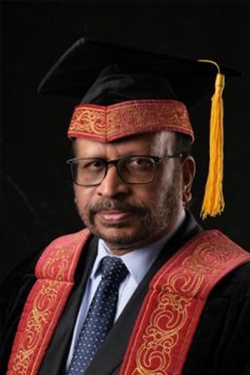
Message from the Vice Chancellor, University of Moratuwa
The program is the first of its kind in the entire higher education system of Sri Lanka and is a significant step towards achieving the national development vision of the Government of Sri Lanka. The Department of Civil Engineering and its dedicated staff contribute to our nation and neighboring nations by disseminating our strengths in water and irrigation.
We are pleased to welcome you all to the full-time International Master’s Degree program in Water Resources Engineering and Management at the University of Moratuwa. This program is a groundbreaking effort by the Water Engineering Division of the Department of Civil Engineering, which initiated the first Postgraduate Degree Programme at our university.
The University of Moratuwa’s efforts have received substantial support from the South Asia Foundation, and the Late Hon. Lakshman Kadiragarmar invited our university to submit a funding proposal. The South Asia Foundation has consented to provide full scholarships to SAARC country students. In addition, UNESCO goodwill ambassador Late Shri Madanjeet Singh donated a new building for the regional center, which housed this Master’s degree program, water management, related research, and training programs, using his personal funds.
We would like to take this opportunity to thank all those who have tirelessly worked towards achieving this goal, as well as those who have supported us with finances and goodwill. We wish the program and the UNESCO Madanjeet Singh Center for South Asia Water Management success in the coming years.
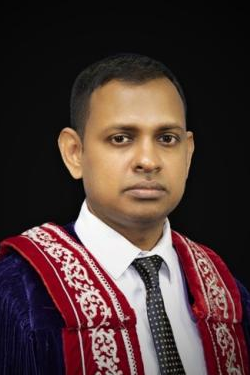
Message from the Dean, Faculty of Engineering
We are pleased to announce that the University of Moratuwa’s Faculty of Engineering continues to be a leader in technical education in Sri Lanka, offering Bachelor of the Science of Engineering degrees in nine disciplines and numerous postgraduate degrees. The faculty is also home to the UNESCO Madanjeet Singh Centre, which promotes interdisciplinary water management courses and encourages cross-faculty collaboration.
Water is a fundamental necessity of life on our planet, but the management of this precious resource has become increasingly complex with less than 1% of the world’s water available for drinking and other essential needs. The rise of industrialization has made water management more complicated, with water pollution and climate change resulting in droughts and heightened competition between agriculture, industry, and humans.
In response to these challenges, the UNESCO Madanjeet Singh Centre’s program has evolved to address a broad range of water-related issues, such as water infrastructure, irrigation, water resources engineering and management, climate change, flood risk assessment and mitigation, GIS, remote sensing, and industrial applications.
We are excited to appreciate the efforts of the UNESCO Madanjeet Singh Centre for South Asia Water Management of the Department of Civil Engineering at the University of Moratuwa in advancing water engineering and management capabilities through case study applications. The Centre’s International Master’s program on Water Resources Engineering and Management has been instrumental in disseminating research projects and case studies, which have contributed significantly to the field.
We believe that the Centre’s initiatives are timely and urge industry stakeholders to contribute to research and training efforts and take advantage of this opportunity to develop collaborations and industry links. We extend our warmest wishes for the continued success of the UNESCO Madanjeet Singh Centre for South Asia Water Management, and hope that it will continue to be a productive platform for knowledge sharing, dissemination, and industry collaborations.
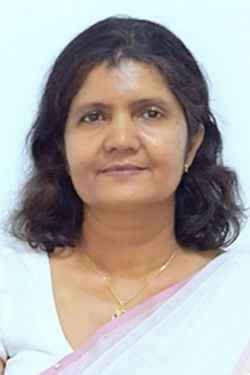
Message from the Department Head, Department of Civil Engineering
The Department of Civil Engineering at the University of Moratuwa has a long-standing reputation as a pioneer in the field, having initiated the university’s first postgraduate program in 1982. The Department’s academic staff are actively involved in teaching, research, and training, and have contributed significantly to national development projects and activities. The department is comprised of six research specialization groups, including Building and Structural Engineering, Construction Engineering and Management, Environmental Engineering, Geotechnical Engineering, Hydraulic and Water Resources Engineering, and Transportation Engineering.
The establishment of the UNESCO Madanjeet Singh Centre for South Asia Water Management (UMCSAWM) and its International Master’s program on Water Resources Engineering and Management have further enhanced the Department’s capabilities and infrastructure. The cutting-edge research facilities under construction will be useful in enhancing postgraduate and undergraduate teaching and research. UMCSAWM’s initiatives, including the recruitment of regional students from SAARC nations, industry-based projects, and the organization of international workshops and conferences, have helped to strengthen much-needed industry and overseas research collaborations that benefit both undergraduate and postgraduate programs.
As the Head of Civil Engineering Department at the University of Moratuwa, I extends my warmest wishes for the success of UMCSAWM. I appreciates the division’s efforts in organizing and conducting international workshops and conferences, industry-based projects, and research collaborations. These activities have contributed immensely to the development of the department and the nation as a whole. She wishes UMCSAWM continued success in its future endeavors.
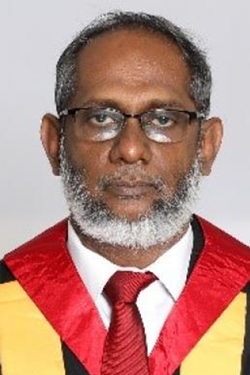
Message from the Divisional Head, Division of Hydraulic and Water Resources Engineering
The Department of Civil Engineering’s Water Group continues to be at the forefront of pioneering initiatives at the University of Moratuwa. The group has achieved several milestones, including the launch of the first postgraduate program at the university. The establishment of the UNESCO Madanjeet Singh Centre of South Asia Water Management (UMCSAWM) is a testament to the Water Group’s ongoing commitment to advancing research and teaching in water-related fields.
The Water Group’s knowledgeable and experienced staff, who possess academic credentials and practical expertise in a variety of water-related areas, are well-known. Their expertise covers a wide range of topics, including hydrology, hydraulics, irrigation, water resource management, coastal engineering and estuarine modeling, water-related GIS and remote sensing applications, hydrodynamic modeling, and more.
The group is dedicated to research and teaching in a variety of water-related fields, engaging in industry-based research and applications while also serving on various departmental, faculty, and university committees, earning national and international recognition.
The hydraulic engineering laboratory, equipped with apparatus and computer facilities for studying practical hydraulic engineering problems, continues to be one of the group’s greatest assets. Students also participate in computer-aided exercises to acquaint themselves with computer packages used in the industry.
The UNESCO Water Centre and the international postgraduate program conducted in collaboration with the South Asia Foundation (SAF-India) are some of the group’s strengths.
With these facilities, strengths, and expertise available, the Water Group remains dedicated to serving the Department, University, nation, and region in the present and future.
Copyright © 2026 UNESCO Madanjeet Singh Centre for South Asia Water Management
WordPress Theme by WPZOOM

